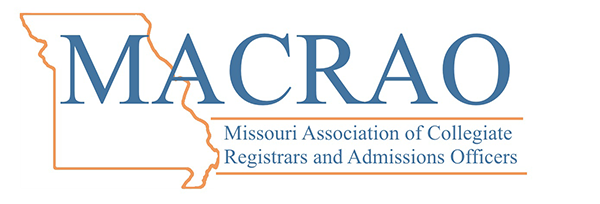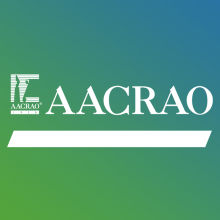Good morning MACRAO membership-
Below are legislative updates since our last post on February 2. This post includes progress on Missouri legislation and some national articles that we thought may be of interest to the membership.
Missouri legislation had recent hearings or have upcoming hearings scheduled:
HB 1712 (https://house.mo.gov/Bill.aspx?bill=HB1712&year=2024&code=R)
Sponsor: Adam Schnelting (R)
Synopsis: Allows Missouri National Guard member educational assistance grants to be available for tuition at out-of-state educational institutions.
Additional Information: This bill was particularly brought to the attention of the Governmental Relations Committee up by some member institutions that expressed concerns about both potential loss of students (due to the ability to use this out of state) and due to bill language related to institutions being required to cover the remaining cost of tuition and fees not covered by other aid and assistance (and what fees are included in this).
Status: Special Committee on Tax Reform Hearing upcoming
SB 1322 (https://www.senate.mo.gov/24info/BTS_Web/BillText.aspx?SessionType=R&BillID=992592)
Sponsor: Sandy Crawford (R)
Synopsis: Currently, any Missouri National Guard member may be awarded an educational assistance grant to an approved public or private higher education institution. This act provides that any Missouri National Guard member may be awarded, upon application before each semester, either a tuition and fee waiver for undergraduate courses at a postsecondary institution of higher education located in this state that directly receives funds appropriated by the General Assembly or a grant to certain eligible institutions as defined in the act. The educational assistance shall not exceed the lesser of the actual tuition charged at an institution where the member is enrolled or accepted for enrollment or the total of the number of credit hours taken multiplied by the average tuition cost per credit hour charged to a Missouri resident at the University of Missouri for attendance, with the average cost determined by the Missouri National Guard. This act additionally allows members of the Missouri National Guard to make a one-time transfer of the educational assistance to a dependent spouse. The total educational assistance shall not exceed a cumulative total equal to 150 credit hours multiplied by the average tuition cost per credit hour charged to a Missouri resident at the University of Missouri. Spouses seeking to receive educational assistance shall provide a certificate of satisfactory service of the member's National Guard duties along with proof of a cumulative grade point average of at least 2.5 on a 4.0 scale while attending the approved institution.
Status: Heard by Senate Veterans, Military Affairs and Pensions Committee
SB 749 (https://www.senate.mo.gov/24info/BTS_Web/Bill.aspx?SessionType=R&BillID=37)
Sponsor: Lincoln Hough (R)
Synopsis: This bill repeals provision restrictions related to the authority to confer research doctorates and first-professional degrees, and degrees in podiatry and chiropractic and osteopathic medicine.
Status: Heard by Senate Select Committee on Empowering Missouri Parents and Children Committee
SB 907 (https://www.senate.mo.gov/24info/BTS_Web/BillText.aspx?SessionType=R&BillID=311)
Sponsor: Jill Carter (R)
Synopsis: This act adds health and life sciences and immersive learning experiences to the mission of Missouri Southern State University.
Status: Heard by Senate Select Committee on Empowering Missouri Parents and Children Committee
HB 2310 (https://house.mo.gov/Bill.aspx?bill=HB2310&year=2024&code=R) -Similar to SB 1075
Sponsor: Cameron Parker (R)
Synopsis: Modifies provisions of the Higher Education Core Curriculum Transfer Act. Would require the transition of Core 42 to a 60 credit hour program that must be in place by June 30, 2025 for the 2025-2026 academic year. The bill allows students with an associate degree from a Missouri public institution of higher education to be considered as satisfying the transferable lower-division coursework requirements and upon transfer to a public institution no additional general education requirements for the same program of study will be required.
Additional Information: This bill seems to have higher interest in the MACRAO membership, ranging from comments of concern expressed by Core 42 Core Curriculum Advisory Committee members to a large number of witness appearances filed for this legislation. Most “in support of” witness appearance forms were submitted primarily by two-year institution membership and MCCA (Missouri Community College Association) while “in opposition to” witness appearance forms were submitted primarily by four-year institution and COPHE (Council on Public Higher Education).
Status: General Laws Committee Executive Session upcoming.
Additional articles and webinars of interest:
Chronical Higher of Education DEI (Diversity, Equity, and Inclusion) Legislation Tracker
This tracker allows users to track DEI related legislation being proposed across the country in a state-by-state format, including the summary and status of the specific related bills (including 12 related bills in Missouri in the current and previous legislative sessions).
US Department of Education: Announcement of Latest Steps to Support Schools and Students with Better FAFSA.
This release covers steps announced by the U.S. Department of Education in response to FAFSA delays and issues.
AACRAO Transcript: https://exchange.aacrao.org/discussion/college-cost-reduction-act-ccra-clears-education-and-workforce-house-committee
Inside Higher Ed: https://www.insidehighered.com/news/government/student-aid-policy/2024/02/01/house-committee-advances-gop-plan-overhaul-higher-ed#
These articles cover ideas being discussed in the College Cost Reduction Act. It includes a number of items that are being proposed both directly in the bill and potentially through proposed amendment. These items include regulation elimination (such as gainful employment), capping and/or ending federal aid and loan programs, reverse transfer, Pell Grant eligibility, and two-year college tuition being free. There is disagreement about what should be included primarily along party lines.
Inside Higher Ed: The Future of Testing is Anything but Standard
This article covers standardized testing decisions being made by different institutions including decisions such as test-required, test-optional, test-flexible, and test-blind.
Inside Higher Ed: The End of the Dean’s List
This article covers why some Ivy League institutions are eliminating the dean’s list in response to efforts to reduce competition, reduce academic stress, and address student mental health impacts.
Gainful Employment Reporting : The Association for Institutional Research (AIR) is offering resources related to the recent regulatory updates on Financial Value Transparency (FVT) and Gainful Employment (GE). While FVT/GE regulations do not involve IPEDS or NCES, NCES is sharing this information in order to help inform institutional research and other higher education professionals of these regulatory requirements. AIR hosted an informational webinar on February 14, and will be hosting another on March 1. Please note that the March 1 webinar has reached capacity for the live webinar. However, recordings and the slides of both webinars will be available on the AIR resource page. The FVT/GE resources are free and open to the public, at: https://www.airweb.org/collaborate-learn/webinars/fvt.
Transcript Withholding Webinar: Educational Computer Systems Inc. is offering a webinar where presenters from ECSI, COHEAO, and AACRAO will discuss the mood on Capitol Hill, the changes to state and federal laws, and alternate, compliant options to drive repayment and help students stay enrolled.
The key learning objectives are:
Understand the current higher ed landscape related to past-due AR.
Hear from policy experts on the state and federal regulations related to transcript withholding.
Discover tools that can keep your institution compliant while collecting past-due AR.
Learn best practices to proactively recover past-due AR without holding transcripts.
To register for this webinar (Thursday, March 21, 2024 at 1 p.m. CST), click here.

